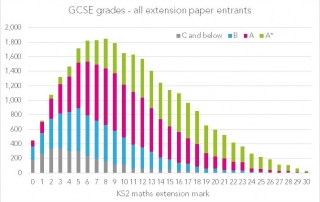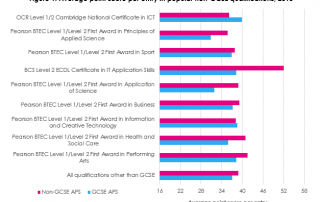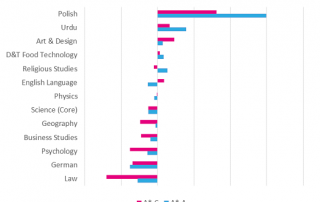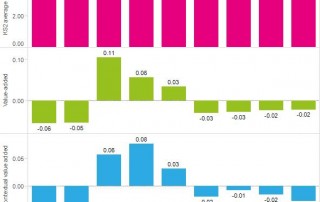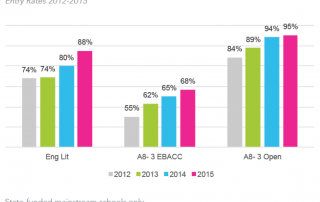Was the Key Stage 2 maths extension paper a good predictor for future GCSE performance?
At our NPD training course last month we discussed the problem of what to do when a test is not universally sat by every pupil in every year. One good example is the Key Stage Two maths extension paper, sat by some 11 year olds in the years up to 2002 and then between 2012 and [...]



